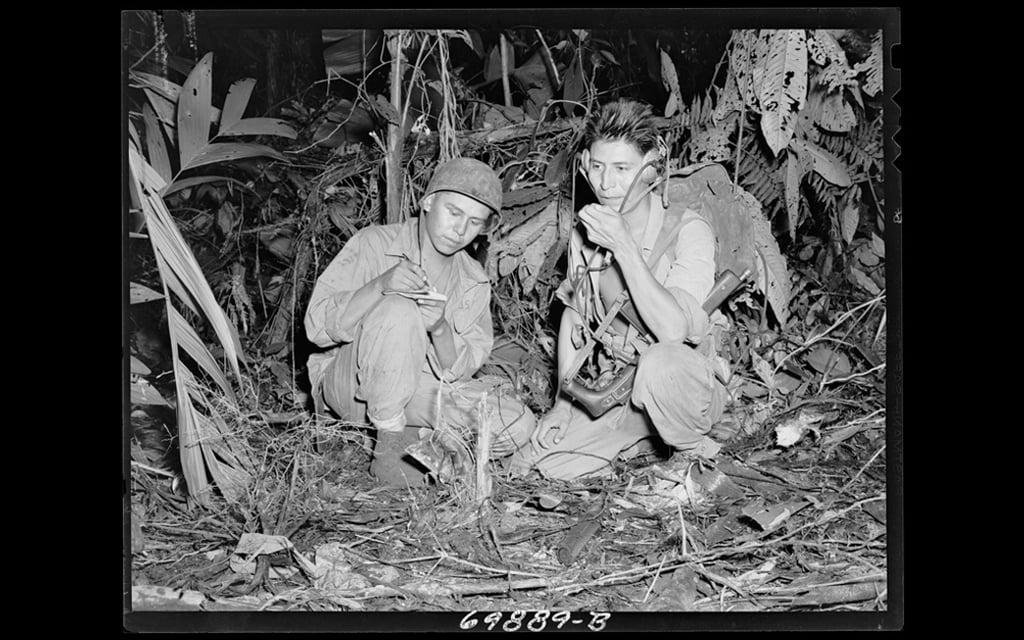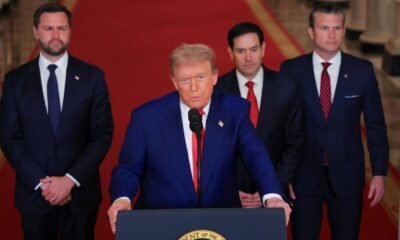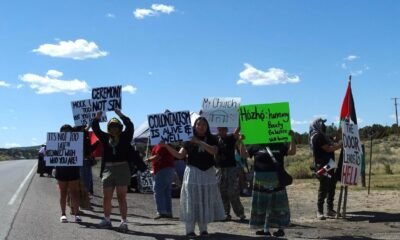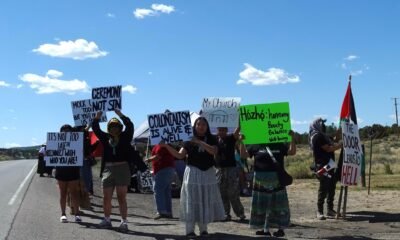history
Pentagon Attributes DEI Scrub to ‘Mistake’ Behind Deletion of Navajo Code Talkers Pages

The Pentagon has labeled the removal of materials related to Navajo Code Talkers as a “mistake,” promising on Tuesday to restore the content that was taken down during a broader effort to eliminate references to diversity, equity, and inclusion (DEI).
This explanation has drawn sharp criticism from Peter MacDonald, 96, one of only two surviving Code Talkers and a former chairman of the Navajo Nation. He condemned any suggestion that honoring these World War II heroes falls under the umbrella of DEI, stating, “You’re not only erasing Navajo culture but you’re also eliminating Navajo code.”
The deletions were reportedly part of compliance with President Donald Trump’s directive to eliminate DEI policies. Axios first reported on the matter, uncovering that at least ten articles mentioning Code Talkers had vanished from both Army and Defense Department websites.
Senator Ruben Gallego, a Marine combat veteran from Arizona, expressed outrage, asserting, “Trump can’t erase history just because he feels like it.” His sentiments were shared by others who noted the historical importance of the Code Talkers’ contributions.
Initially, Pentagon press secretary John Ullyot defended the deletions, asserting, “DEI is dead at the Defense Department.” However, a day later, the department retracted its stance, admitting the removals were a mistake. Some articles have since been reinstated, but others, including crucial accounts of the Marines’ wartime contributions, remain offline.
Navajo President Buu Nygren has demanded clarification from Pentagon officials about the deletions, emphasizing their cultural significance. He noted that recognizing the work of the Code Talkers is vital for the Navajo Nation.
Senator Mark Kelly, another Arizona representative and former Navy pilot, criticized Trump for attempting to diminish the legendary achievements of the Code Talkers. Over 400 Navajos served as Code Talkers during WWII, and their work remained classified until 1968. In 2000, Congress awarded Congressional Gold Medals to the original 29 Code Talkers who developed the code, recognizing their pivotal role in the war.
Only three Code Talkers are still alive today, following the recent passing of John Kinsel. The remaining survivors are MacDonald and Thomas Begay, who witnessed combat at Iwo Jima and later served in the Army during the Korean War.
MacDonald, who joined the Marines at 15, stated, “This has nothing to do with DEI. Code is a weapon, and that weapon helped us win the war.”
Crystalyne Curley, speaker of the Navajo Nation Council, called the legacy of the Code Talkers “a cornerstone of American history,” condemning the attempt to erase their contributions as both disrespectful and dishonorable.
Amid this outcry, Amanda Tom, whose grandfather was a Code Talker, described the deletions as “total disrespect” toward Indigenous people, stressing the sacrifices made by those who served. “If these Navajo Code Talkers never helped us win World War II, we would be speaking Japanese,” she reflected on her grandfather’s experiences in the war.
The restoration of these historical references is crucial, not just for military heritage but also for recognizing the lasting significance of the Navajo Code Talkers in American history.


















